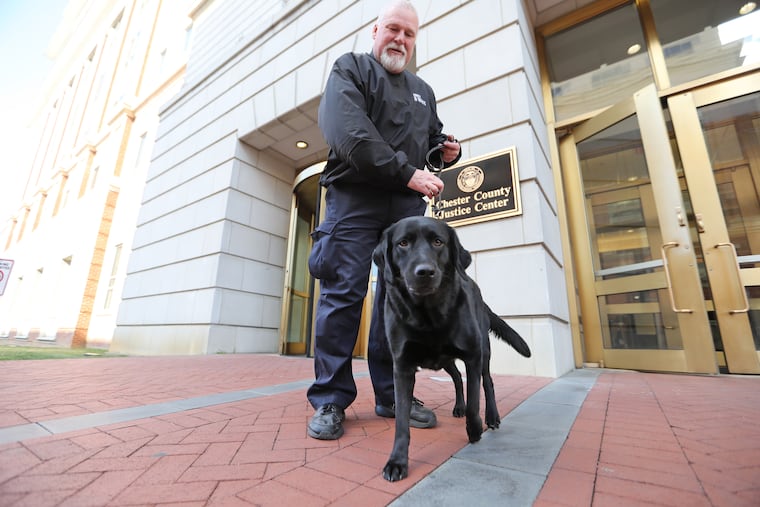Chester County controller takes sheriff to court, seeking refund of $67K in overtime
Controller Margaret Reif says Sheriff Carolyn "Bunny" Welsh improperly paid overtime to one of her lieutenants.

In an unprecedented move, the Chester County controller has taken legal action against the county sheriff, calling for a refund of more than $67,000 in overtime the controller contends the sheriff improperly paid to a lieutenant with whom she has a personal relationship.
County Controller Margaret Reif, in a legal filing Friday in Chester County Court, questioned overtime Sheriff Carolyn “Bunny” Welsh paid to Lt. Harry McKinney. Reif said the money paid to McKinney in the last three years was "unearned and unmerited overtime that was not based on the result of actual overtime work.”
McKinney and Welsh are longtime companions and have lived together for 15 years, according to Reif. The controller described the overtime payments — by far the highest within the sheriff’s department — as a way for Welsh to pad her household income and help “spike” McKinney’s retirement benefits.
Welsh denied that Monday and said the legal challenge was politically motivated. She described it as a continuation of an effort that began last year when Reif expressed concern about money raised by Welsh’s office for its K-9 unit, which McKinney heads.
“I think this is just continuing contention between the Controller’s Office and sheriff’s office, and it’s unfortunate,” Welsh said. “This has been misinterpreted, and I think the controller has misinterpreted the data in a negative attempt to smear me.”
Reif took Welsh to task in the fall over the K-9 unit’s bank account, boosted by donations that Reif said were used as a veritable slush fund. The resulting investigation was referred to the office of the state attorney general, who has said little on the matter. Its status remains unclear.
Reif has said her audit of the overtime payments began with an anonymous letter to her office.
In her filing Friday, Reif said McKinney is considered an entry-level employee by payroll standards, and is eligible to accrue overtime. Despite this, she said, McKinney has been given administrative-level duties, overseeing the K-9 unit and having other members of the department report to him. Such duties should have made him a salaried employee unable to collect overtime, Reif said, calling Welsh’s arrangement with the officer “abnormal and inconsistent with county policy.”
On time cards, McKinney listed the overtime as payment for caring for dogs assigned to the K-9 unit. Reif noted that a previous administrator in the sheriff’s department told county officials that “care of the canines” is built into the handlers’ workweek and considered comp time.
Despite that, Reif said, beginning in March 2016, McKinney charged 10 hours per week in overtime. No other employee in the department with similar management responsibilities received overtime, she said. During that time period, she said, some of McKinney’s time sheets showed that he worked zero hours, but still received overtime.
Welsh said that Reif’s conclusions were inaccurate, and that payroll slips show that McKinney properly filed for overtime that was often paid out in one check for previous weeks’ work.
“The documentation would’ve answered a lot of her questions and refuted the allegations,” Welsh said. “There’s no abuse of overtime, and that will be proven.”
Welsh and Dawson R. Muth, her office’s solicitor, defended the payments to McKinney for caring for the dogs, saying they were justified under the federal Fair Labor Standards Act, which they say allows canine handlers to collect overtime regardless of their rank.